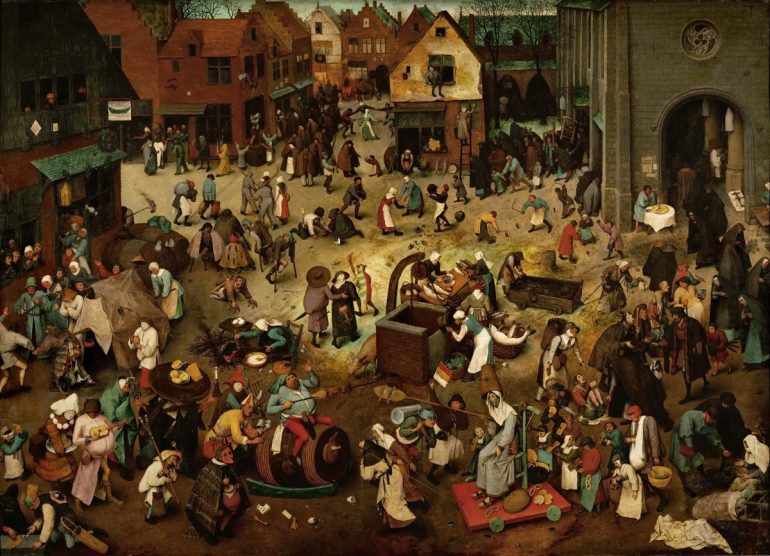Ash and Honesty
I read somewhere recently that Ash Wednesday is, at its essence, the most honest day of the liturgical year. A fierce, hard, no fun, no jokes, kind of honesty. I have to admit that this kind of honesty is not easy for me. My natural inclination is to use humor to lighten dark places, to poke fun, to make jokes. But for Ash Wednesday, that won’t do. On this day, if on no other, I think we just have to be honest with ourselves.
Ash Wednesday is about honesty and it’s about remembering.
As Barbara Brown Taylor puts it, Ash Wednesday is “the day Christians attend their own funerals.”[ref]In Feasting on the Word, p. 21.[/ref] And whether or not worshipers receive ashes on their foreheads in the sign of the cross, the liturgy we are about to hear reminds us of our own demise: ‘Remember that you are dust, and to dust you shall return.’”
Remember that you are dust, and to dust you shall return.
It doesn’t get any more honest than that. You won’t see that on Facebook, on billboards, on television ads. We don’t live our lives with that fact in front of us. And I get it. I think that’s okay, by and large. We’d have a rough go in our day to day functioning if our mortality was all we thought about.
It doesn’t really seem like good news, does it?
Better to turn to our Gospel text for the day then. Surely there is some Good News to be found there. I want to focus on the latter part of the text:
[openquote]And whenever you fast, do not look dismal, like the hypocrites, for they disfigure their faces so as to show others that they are fasting. Truly I tell you, they have received their reward. But when you fast, put oil on your head and wash your face, so that your fasting may be seen not by others but by your Father who is in secret; and your Father who sees in secret will reward you.
Do not store up for yourselves treasures on earth, where moth and rust consume and where thieves break in and steal; but store up for yourselves treasures in heaven, where neither moth nor rust consumes and where thieves do not break in and steal. For where your treasure is, there your heart will be also.[ref]Matthew 6:16-21, NRSV[/ref][closequote]
Doesn’t sounds so good yet, after all the death stuff, does it? Stay with me, here.
Fasting: What’s it All About?
I don’t know about you all, but I’ve always been a bit ambiguous on what fasting is all about, why we do it in Lent, and what the connection is to treasure in heaven.
For a guy who is in seminary, I must admit that it’s pretty embarrassing how frequently I read something Jesus said and am surprised to have a reaction like “Woah… this guy might really be on to something, here!”
Jesus fasts for forty days in the wilderness. He tells people to fast and that they should do it and not make a big show of it. And for most of my life I thought, “Hey, Jesus, that’s swell for You. Maybe cool for those fishermen guys you chum around with, too. But for me, I’m not really feeling it. Different strokes for different folks, you know? I’ll catch you on the next spiritual discipline around.”
Before I go any further, I want to be clear: when I speak of fasting, I am not thinking only in terms of food. There are plenty of things we can fast from, and I know how tricky people’s relationships with food can be, sometimes healthy, sometimes dangerous.
When I speak of fasting, I simply mean self-denial of some of the ordinary in our lives.
I used to think Jesus asked us to fast just so that we would suffer a bit and feel bad about ourselves or realize how depraved we are or something like that. I don’t know where I got that idea. It isn’t really in keeping with Jesus’ nature. He doesn’t strike me as a God that is into the guilt trip business.
Or maybe I thought fasting was a way that we could sort of thump our chests (privately, else we become hypocrites) and show how tough we are as Christians. Kind of like a holy game of bloody knuckles. Don’t show them that it hurts. That was an equally twisted understanding.
No, fasting is not for the purpose of suffering. It is for remembering.
In some ways, it is a voluntary giving up, it is a reminder of all that have to lose, and in so losing, a reminder to us of what really matters.
I first started appreciating fasting when I thruhiked the Appalachian trail. It was one of those, “woah! maybe Jesus and the boys are onto something” moments.
While I was hiking and, in so doing, fasting, I began to appreciate the “things” of life in a completely new way.
When you haven’t showered in twelve days, a shower is no longer just a shower. It borders on divine. The joy it brings cannot be described. When you’ve eaten trail food like oatmeal for two weeks, and finally get a good, home-cooked meal, words cannot express the pleasure that good food and drink bring. When you haven’t talked to your loved ones for days, you really pay attention to that phone conversation.
Ezra Pound, the poet, writes:
What thou lovest well remains,
the rest is dross
What thou lov’st well shall not be reft from thee
What thou lov’st well is thy true heritage.[ref]From “Canto LXXXI” in The Cantos of Ezra Pound.[/ref]
There is a lot of dross in our lives. Fasting helps us sort through the dross. Most of us will find we do not truly miss television, Facebook, video games, or cookies.
Rather, we yearn for the people we love. We yearn for good food and drink. We yearn for a dry place to sleep. We yearn for home.
We might even realize, if we really pay attention, Who we need most. We might realize that we cannot live on bread alone, but that we live by the Word of God. This is what Jesus teaches us when He fasts for 40 days in the desert. When all is stripped away, we remember what cannot be taken away.
When we pay attention to what we truly need, we are finally able to see the things that matter for their incomparable value, and love them how we ought.
In the end, fasting makes us ask the hard question: What do I really need? I don’t think that it is a coincidence that the passage on fasting from today’s reading comes right before the passage on questioning what our treasure is. The two are linked. Fasting helps us figure out what sort of treasure we are really after.
Ashes and Honesty
I once heard a story on the radio about on old man reminiscing on the end of his life.
He talked about time, and how it changes and speeds up as you get older.
When you are a kid, time moves by like the mile markers on the side of the road. Bump…… bump………..bump
You get a little older. It starts to be like telephone poles. Bump..bump..bump.
Then, later in life, fence posts. Bump.bump.bump.bump.
He said as an old man, time moved like you are going over railroad ties. One year after another so fast you don’t know where it’s gone. bumpbumpbumpbumpbump
It’s Ash Wednesday. It is the day we are honest.
Whether we are marking our days in telephone poles or railroad ties, on this day we are asked to be honest with ourselves and our mortality.
Remember that you are dust and to dust you will return.
Let’s try fasting from something. Let’s consider cutting some of the dross from our lives to remember what is truly important. What treasure are we storing up? As Mary Oliver puts it,
Tell me, what is it you plan to do
with your one wild and precious life?[ref]From “The Summer Day”in New and Selected Poems by Mary Oliver[/ref]
Think hard and be honest.
But remember this, too.
In the Wilderness of our lives, when, at times, everything feels like dross or dust, when it feels like everything is ash that might just all blow away, remember that there is one Rock that remains.
This Rock is the Treasure that a million moths cannot consume. This Treasure will never rust. It cannot be stolen because it is already freely given away.
If you remember nothing else, remember that in Life and Death we belong to God.
Whether we find ourselves in a place that looks like heaven or it seems we have made our bed in hell, behold, we have it on good authority that God is there, too.
All that we have, all that we lose, all we are, all that seems bright as sunrise and all that fades to dust matters to a God who loves us more than we can ever realize, who will not let us go, who will not let Ash be the final word.
And that is Good News.





